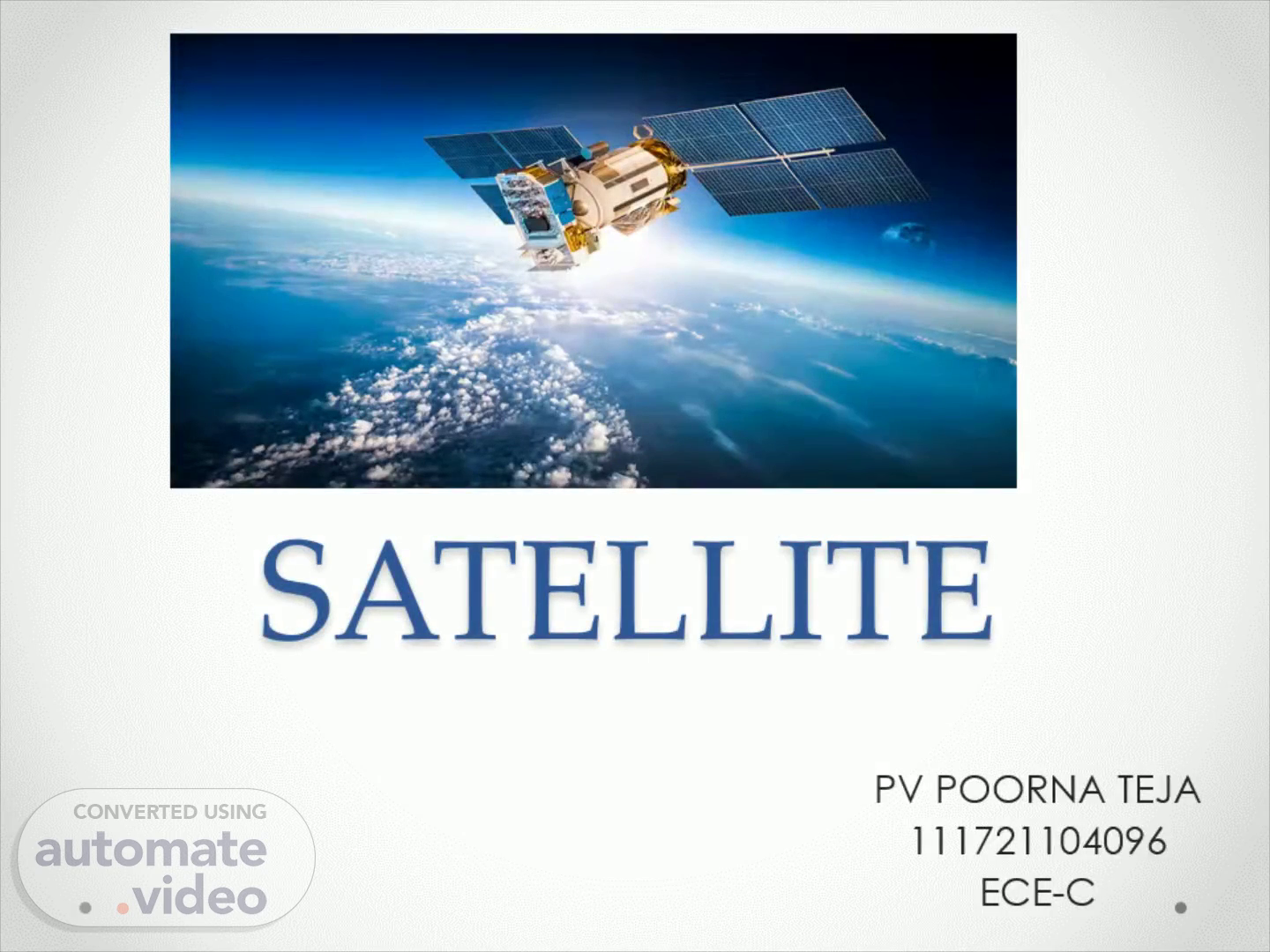Scene 1 (0s)
SATELLITE. PV POORNA TEJA 111721104096 ECE-C. abstract.
Scene 2 (11s)
PURPOSE STATMENT. abstract. Satellites provide information about Earth's clouds, oceans, land and air . They also can observe wildfires, volcanoes and smoke. All this information helps scientists predict weather and climate..
Scene 3 (27s)
DEFINITION. A satellite is an object in space that orbits or circles around a bigger object . There are two kinds of satellites: natural (such as the moon orbiting the Earth) or artificial (such as the International Space Station orbiting the Earth).
Scene 4 (44s)
PARTS. The main components of a satellite consist of the communications system, which includes the antennas and transponders that receive and retransmit signals, the power system , which includes the solar panels that provide power, the propulsion system , which includes the rockets that propel the satellite ..
Scene 5 (0s)
USES. Television. Satellites send television signals directly to homes, but they also are the backbone of cable and network TV . Telephones. Navigation. Business & finance. Weather. Climate & environmental monitoring. Safety. Land stewardship..
Scene 6 (1m 13s)
ADVANTAGES. Flexibility. Ease in putting in new circuits. Distances are effortlessly taken care of and expense doesn't make a difference. Broadcasting conceivable outcomes. Each and every side of the earth is secured. Users can control the system. Energy is conserved since satellites use solar power ..
Scene 7 (1m 29s)
nox >lueqx.
